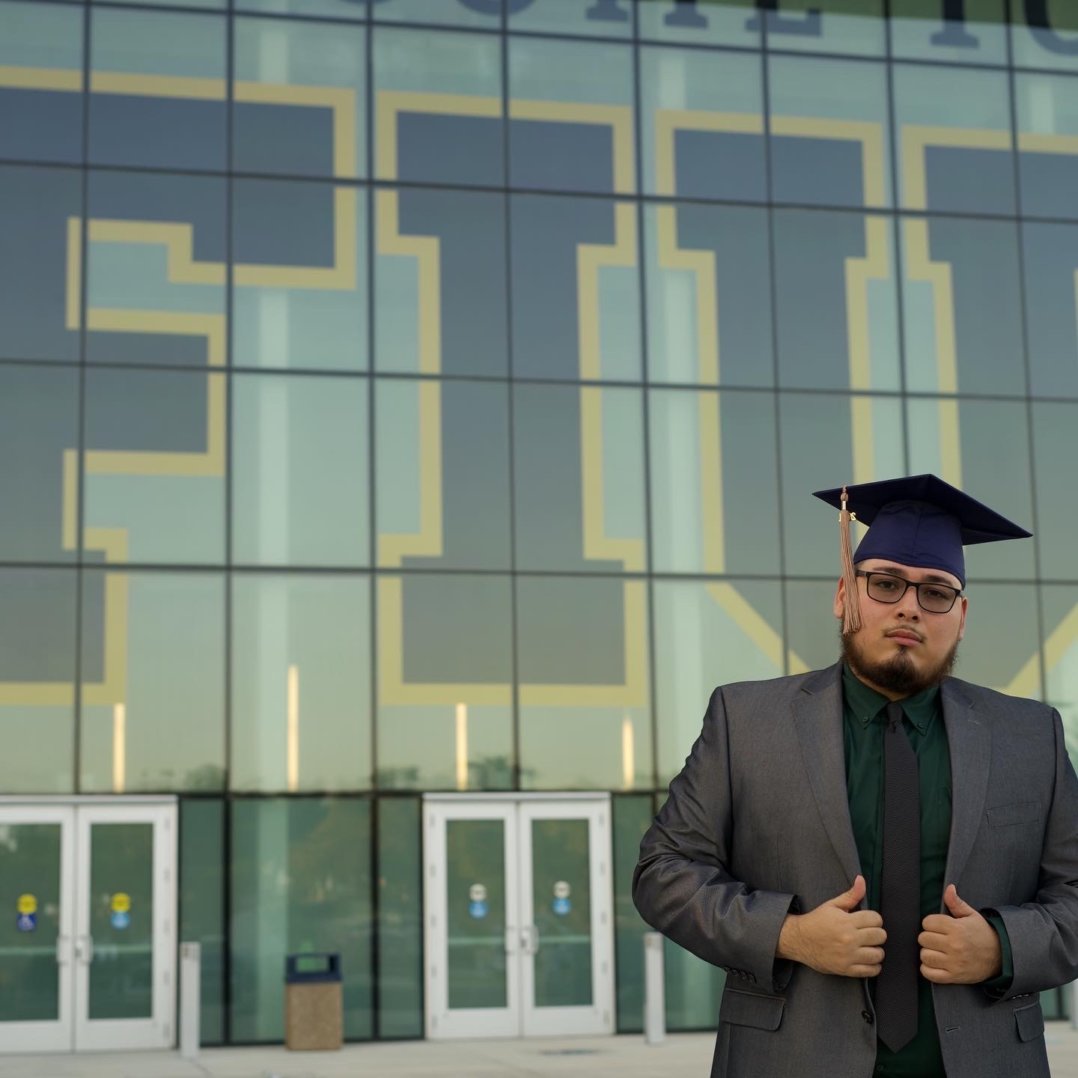First-Gen Anthony James Corea Explains How He Managed to Finish College After a Debilitating Car Accident
Anthony James Corea considered himself to be an “average” first-generation Latinx college student until a massive car accident in Miami severely injured his body and nearly took his life in 2018. Today, he’s reflecting on how his family, his community, and certain education and health practices and policies contributed to helping him graduate, as well as what more could be done to help and inspire students like himself.
The son of working-class immigrants from Nicaragua and Costa Rica who emigrated to Miami for a safer, more prosperous life, Corea always knew college would pave the way for him and his family. Still, he never imagined he would have to work so hard to get there. After graduating high school in 2016, he took a common approach for many children of immigrants and first-generation higher-education students by starting with an associate’s degree at a community college. He got his associates degree in general studies at Florida Southwestern State College, then he transferred to Florida International University for a bachelor’s in business administration and marketing. At FIU, he also earned certificates in sales and customer relationship management. Also common among first-gen, Latinx students like him, he had limited funds and health insurance, and he drove a family car to get to and from his classes. It was in that vehicle that everything went terribly wrong on November 27, 2018.
“I was driving home after a normal evening. I was a couple of blocks from my apartment when I arrived at a red light,” he recalls, explaining how when the light turned green, he slowly pressed the gas to cross the intersection. “At that point everything went black. I was struck by a driver that made the nearly fatal decision to run a red light. The driver t-boned my car, leaving it totaled. I was stuck inside suffering from broken bones and internal bleeding.”
Keep up with the latest from UnidosUS
Sign up for the weekly UnidosUS Action Network newsletter delivered every Thursday.
Later reports estimated that the driver was going 50 mph in a residential area that has a speed limit of 35 mph. When he awoke from unconsciousness, his entire body was numb. A man who witnessed the accident was outside his car door telling him he’d called 911 and help was on the way.
“When first responders arrived, the jaws of life had to be used to get me out of my car. I remember being put on a stretcher and trying to do my best to answer all the paramedics’ questions,” Corea says. “The next thing I remember, I was lying in an intensive care unit at Jackson Memorial Hospital being prepped for surgery. Every day I am grateful that something told me to wear my seatbelt that night—I truly believe I would have died if I didn’t.”
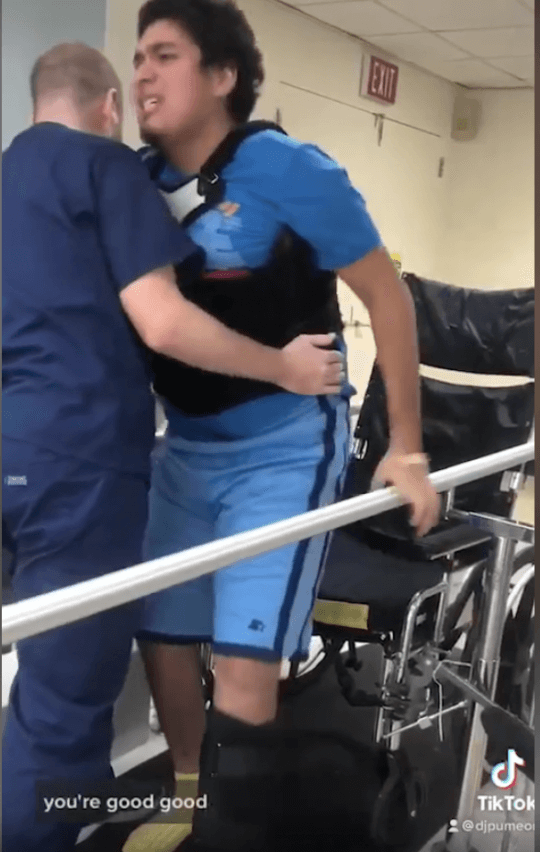
Everything about that accident hurt. Just being transferred from one bed to another left him writhing and crying from the pain in his pelvis and left ankle, which had both been crushed in the collision. “After two intense surgeries, I was left without a spleen, with two long screws holding my pelvis together, and 22 small screws reconstructing my ankle,” he explains.
On top of suffering physically, Corea was facing a huge financial burden. His health and accident insurance were limited and so was the car insurance of the driver that hit him. As the weeks dragged on in the hospital, the bills piled up, and Corea’s sense of hope began to dwindle. Suddenly he was losing his will to live, even contemplating suicide.
“The accident literally changed everything for me,” he said in a phone conversation this winter to ProgressReport.co. “I wasn’t the smartest student, or the highest scorer in the class. I was always kind of in between, but the thing that set me apart from some people was that I cared. I cared a lot, and I felt I needed to represent not only Central America, but myself as a minority.”
On the one hand, he was lucky enough to have some young Latino doctors, as well as counselors and social workers who tried to make him feel more at home in such a scary and sterile environment. On the other hand, he says some medical professionals were so busy or so racially biased that they didn’t seem to recognize his pain as they moved him around. When he was finally released from in-patient care, not even painkillers could stop the hurt of the bumps on the van ride home.
“The metal was digging into my pelvis, so I would cry, cry, cry. I remember asking my mom ‘please just let me die,’ but she said no papa it’s okay, you already went through the hard part. You just have to keep going,” Corea says.
Encouragement like that was one of several factors that contributed to his recovery and ability to advocate for himself. First, he began to recognize how to speak up when he wasn’t being treated carefully and kindly, and to be open about his fear of being debilitated and living with chronic pain.
“I was very cooperative with my doctors, telling them everything I was feeling mentally and physically,” he says.
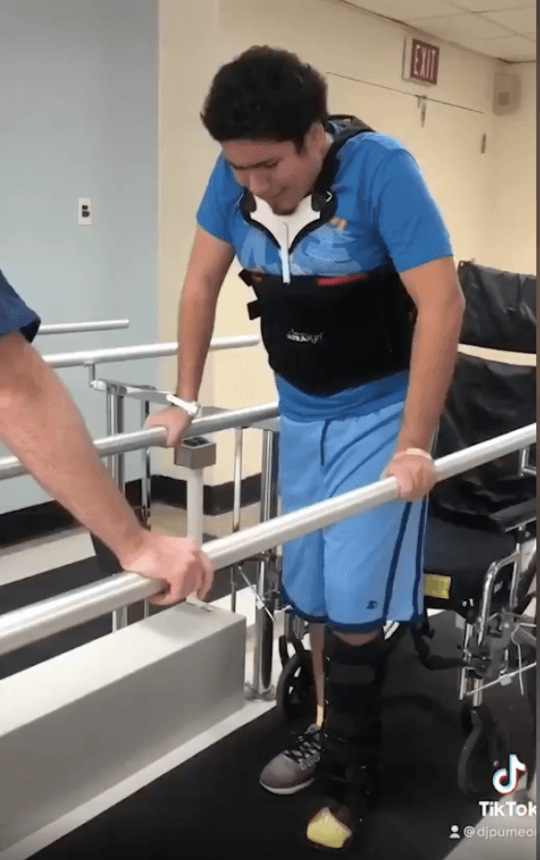
He also spoke of his fears of losing the dream his family had built for him. “I didn’t know if I was going to be able to continue my education and if I was going to finish. I didn’t even know if I was going to be able to walk again. One of the scariest parts for me in that moment was the idea that my grandparents weren’t going to see me graduate. My grandmother instilled in me the belief that your education can take you far in life. I always wanted to give her that proud moment of watching her first grandson walk across a stage to receive a degree,” he says.
Concerns like these got him thinking about all the community strengths that came with being Latino and from an immigrant family. Many of his Miami classmates had similar stories, and so they had grown up talking about how the challenges their families faced were motivators for staying on track with school. His grandmother, a registered nurse in Nicaragua, flew to Miami to help feed and bathe him after the accident, just as she had done when he was as a child. Friends and some former educators created and began donating to a Go Fund Me account to assist with any medical bills that weren’t covered by the hospital’s reduced fees for low-income patients.
Around that time, administrators in FIU’s dean’s office reached out to check on his progress, asking him what they could do to help him fulfill his dream of finishing college. But they asked him to do something particularly challenging to his physical state at the time—to show up on campus to discuss financial assistance and support from their disability resource center.
But the university’s encouragement propelled him. After listening to his story, they offered him a scholarship for first-generation students, one that could help him buy a new car to drive himself to school.
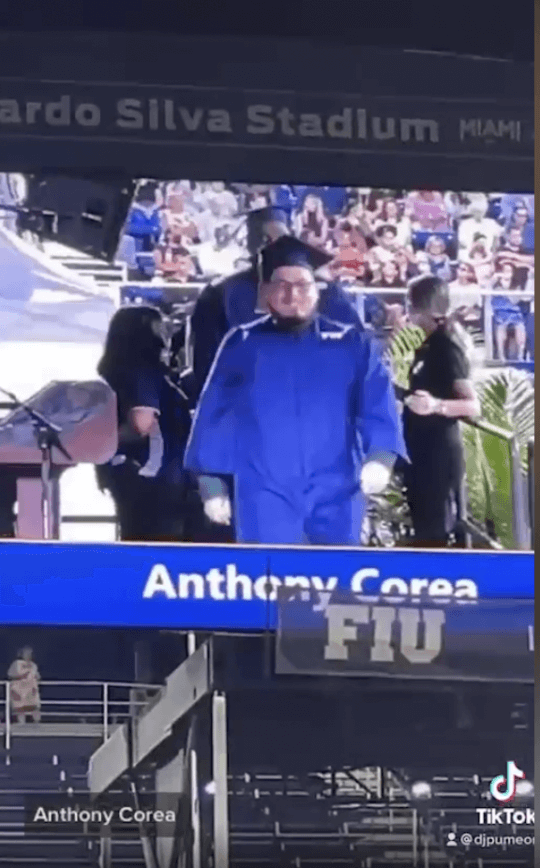
He also contemplated the various ways he had learned to look for or accept help in the past, and how it had gotten him as far as his junior year before the accident. For example, when he was struggling with high school math, he took advantage of free tutoring. He also sought out and listened to anyone who seemed like a good mentor. And now, he was learning to cut ties with anyone who wasn’t adding value to his life, while building rapport and taking risks for those who do.
That led him to develop a relationship with his girlfriend Alyssa.
“I was a very pessimistic person, but Alyssa helped me change the way I see things,” he says. “I would easily get discouraged because my body had suffered a trauma that it would not fully recover from. Alyssa took the time to hear my story and help me stay motivated through my last year at FIU. For the first time, I found someone that I could fully trust and lean on. She has a big heart, and she takes care of me to the best of her abilities. She has told me many times if she could take away the pain she would, and that warms my heart. She really shows me love.”
During that last year at FIU in 2021, Corea landed an internship at a tech company, moving up to strategic account manager before he even graduated. Right as he was about to make the triumphant walk across the stage to receive his college diploma, he asked his boss if he’d get a raise after obtaining the degree and what plans the company had for his future.
“He told me straight to my face that my degree is just a piece of paper,” says Corea. “That wasn’t an answer that left me feeling very confident.”
With that he started a new job search, looking for a company that could show him a lot more enthusiasm and support. In January, he landed a job with Dell Technologies, a company that would allow him to work remotely from Sacramento, California. He has just relocated to be with his girlfriend as she attends her last year at McGeorge School of Law, where she will earn her J.D. in May 2022.
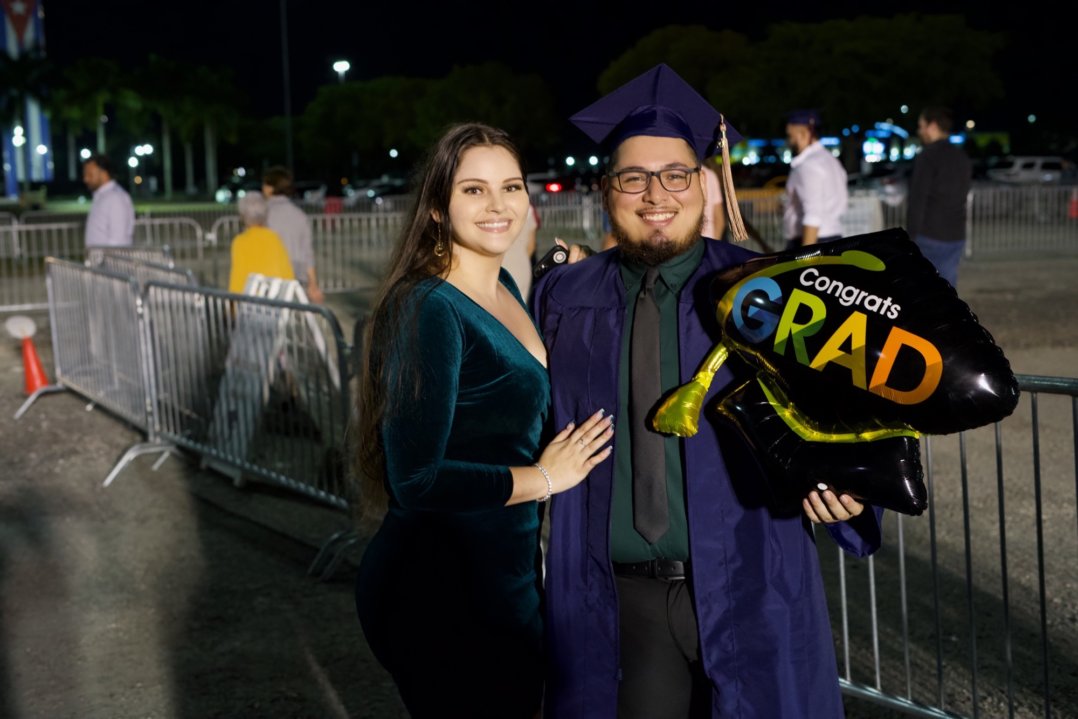
“At Dell, I’m looking for growth. I’m excited to expand my knowledge—I love learning from people in the industry. I want to redefine my technical skills and soft skills as well,” he says. “I want to work on building a relationship with the customers and with anyone in the organization who gives me the information necessary to become a trusted advisor.”
And once he does all that, he hopes that someday he can start his own business or venture, maybe one that leads to public speaking.
“Ultimately, I just want to help and empower people who need it,” he says. I can do that by sharing my stories and digging deeper into my pain. That’s how we can understand the big why in life. I fought a lot to be where I am today, so I share my achievements with all of you to show that everything in life is possible when you dedicate the necessary time to achieve it.”
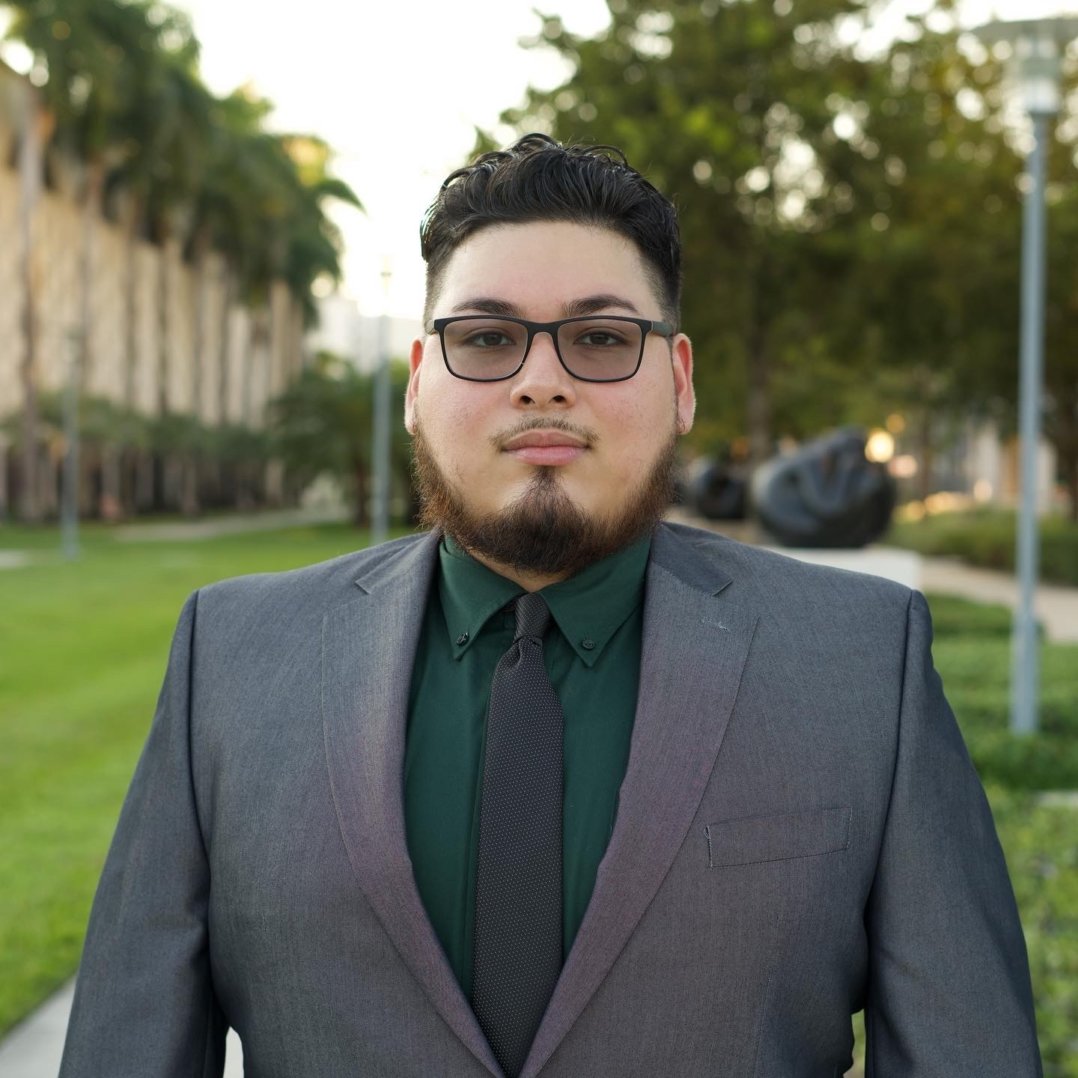
UnidosUS is committed to helping students like Anthony achieve the American Dream by attending college in under six years. It is doing so by advocating for policies that give Latinx and other underserved student populations better, more affordable access to covering the costs tuition, room and board, health care, and transportation, as well as the mentorship and mental health resources to stay focused on their goals. You can learn more about this work by readingt ProgressReport’s higher-ed posts. If you have a related story to share, please contact UnidosUS Senior Policy Advisor Roxanne Garza at [email protected].

